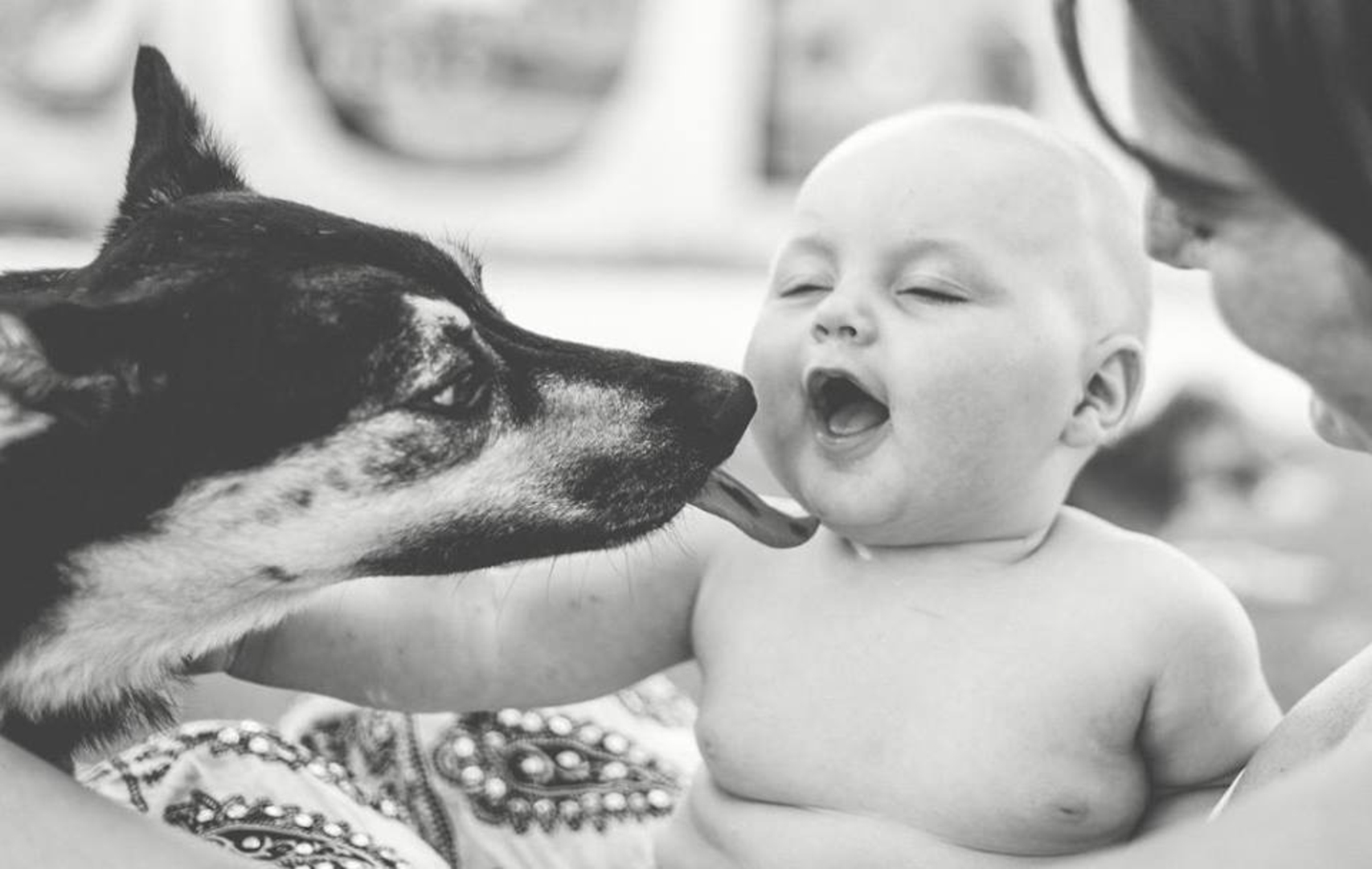Children and dogs in a household share gut microbes – and these microbes are modified by a canine probiotic
From longtime family pets to ‘pandemic puppies’, dog ownership is seemingly more popular than ever. In households with children, scientists have found that a pet dog is one of the environmental factors that influences the gut microbiota in early life – but can the microbes that children and dogs share be modified?
A new study from ISAPP president Prof. Seppo Salminen (University of Turku, Finland) and colleagues recently explored the impact of a household dog on children’s gut microbiota, before and after the dogs were given a canine probiotic. Not only did the gut microbiota of dogs and children in the same household share features in common, but also the gut microbes of both shifted after dogs received a probiotic.
The study, which was part of a larger investigation, looked at families with at least one member who had allergic disease. Thirty-one of the families in the current study had dogs, and 18 families (the control group) did not. From each household, the fecal microbiota of one child (aged 5 or under) was tested. The fecal microbiota of the dogs was tested, and further, they received either a probiotic containing 3 canine-derived strains, or placebo.
The data supported previous observations that dogs and children share gut microbes: the children living with dogs had a distinct fecal microbiota composition. The most striking microbiota differences were a higher abundance of Bacteroides and short-chain fatty acid producing bacteria.
Moreover, when the household dogs were given a probiotic, both the dogs and the children living with them showed a gut microbiota shift, with a reduction in Bacteroides. (The exact probiotic strains were not tracked in the feces of either the dogs or the children.)
Were the changes beneficial? It’s not certain, since health outcomes in the children were not part of the study. But these findings provide more evidence for the effect of home environments and pets on the gut microbiota of children, and highlight the modifiability of both the dog’s and children’s gut microbiota. The ability to modify a child’s gut microbiota is of particular interest in the early years, when gut microbiota / immune interactions have the potential to shape health through the lifespan.
The study authors conclude, “Our promising data invite the idea that the compositional development of the gut microbiota in children is potentially modifiable by indirect changes in household pets and justify the further search of novel modes of intervention during critical period when the scene is set for the consolidation of the child later health.”





